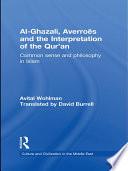
Library of Congress Subject Headings
Philosophy, Practice, and Prospects
The first comprehensive theoretical treatise on Library of Congress subject headings, this important book provides an analysis of the Library of Congress subject heading system and its application. Library of Congress Subject Headings aims to help improve the clarity of the system, increase consistency and arrangement, increase the number of effective access points, facilitate the interaction of the system with the computer, and generally to make the Library of Congress subject heading system and its application of even greater value to the cataloger and the user. Practicing catalogers, library school personnel, advanced students, and any professional who is very knowledgeable about and seriously interested in Library of Congress subject headings will want to read this highly acclaimed volume. Author William Studwell includes theoretical, conceptual, and philosophical considerations based on 25 years of everyday practical cataloging and indexing work and the knowledge gained from theoretical research for the more than two dozen articles on subject cataloging that he has written in the last decade. He presents thought-provoking, often controversial material in three parts. The first section, “The System,” deals with the basic philosophical foundations of LC subject headings. Thirty-two “principles”--guidelines and suggestions are offered along with detailed explanations, examples, and their relationships to other principles. The second section, “Application,” focuses on the matters of subject cataloging practice, or interpretation and application of LC subject headings. The third section, “The Future,” looks ahead to future issues relating to subject cataloging, such as the development of a theoretical subject heading code, the interface of LC subject headings with the computer, and some speculation as to the role and nature of LC subject headings in the years to come.
- ISBN 13 : 1136579435
- ISBN 10 : 9781136579431
- Judul : Library of Congress Subject Headings
- Sub Judul : Philosophy, Practice, and Prospects
- Pengarang : William E Studwell, Ruth C Carter,
- Kategori : Language Arts & Disciplines
- Penerbit : Routledge
- Bahasa : en
- Tahun : 2013
- Halaman : 126
- Halaman : 126
- Google Book : https://play.google.com/store/books/details?id=tFtg1B0t1l4C&source=gbs_api
-
Ketersediaan :
it should not be discarded in favor of less-established and unproven alternatives
The Library of Congress subject heading system has been in existence for nearly
a century. During that time it has progressed from a small list for use by just the
Library of Congress to a huge and complex system which is widely utilized
around the English-speaking world and beyond (for example, in France and
French Canada). No other system is as pervasive nor as dominant. The system
has a large ...









